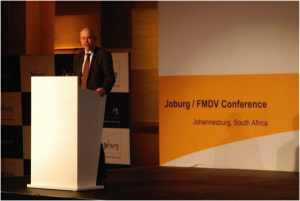European investment has decrease significantly since the years of the financial crises. This much is evident in the EU Commission’s “An Investment Plan for Europe”, published in November last year. It is, they argue, now crucial that get investments back on track and reverse a, post 2007, a 15 percent downturn of investments. The aim has to be economic recovery, job creation, long-term growth and competitiveness. One could not agree more.
IMF’s World Economic Outlook (Oct. 2014) is in line the reasoning of the EU Commission. The authors of the outlook argue that there is a huge need for public investments, and that now is the time for action. Disconcertingly, public investments have fallen over the past three decades. But the problem reaches further than low investment levels in new infrastructure, the quality of existing public asset are deteriorating. Europe, and other parts of the world need to ramp up both new investments and maintain old ones.
Something needs to be done, but who shall do it? The EU Commission’s Investment Plan for Europe has no mention of the role of local authorities, beyond one or two fleeting references to regional authorities having a role to play. It is as though cities and municipalities have been erased from the world of investments. This despite the fact that they totally determine the level of public investments in Europe. In a recent study of the OECD local government are responsible for close to 70% of all public investments.
This omission would have been more understandable if the situation for investments on the local level were back on track. But this is not the case. In many European countries, local authorities are reliant on commercial banks for the financing of local infrastructure investments. With the up-coming Basel III rules this market is changing. Banks will be required to strengthen their capital base and, in order to keep their profitability, they will need to focus on higher yielding asset than municipal loans on their books. We have already seen that banks have significantly raised margins and shortened maturities on loans to local authorities. This does not stimulate local long-term investments.
The answer from local authorities in more and more countries is to finance local infrastructure investment through their own agencies. These agencies pool the financing needs and by that reaching sufficient volumes to raise money in the capital markets with the use of bond issues. The Scandinavian and Dutch local governments funding agencies have already for a long time successfully supplied local authorities with cost-efficient financing. Now, two new agencies exist in Europe: Agence France Locale in France and Local Capital Finance Company in the UK
But now these local government agencies that have served its members so well are subject to deliberations if they should be subject to high capital claims within the Basel III rules. The major part of these agencies has guarantees signed by their members in place. Still, the regulators are looking for these agencies to have a 3% so-called leverage ratio, which would force many to substantially increase their capital. One wonders why, since the both guarantees and stable end borrowers ensures sustainable business models. If the proposed level of capital is finally established, it will means overcapitalised agencies that need to invest the increased capital in financial assets, which at times have proven risky. It would also tie up more public capital that otherwise could be used for investments in local infrastructure.
A real push for infrastructure investments should focus on the role of local authorities and their role to build growth from the foundation. It should also support the local government funding agencies and provide them with long-term beneficial working conditions. In the Commission’s Investment plan for Europe it is stated it is “necessary to improve the regulatory environment for investment”. Why don’t they start with the local government funding agencies?
Lars M Andersson





 versiones del Gobierno Local – comprender el concepto de AFGL
versiones del Gobierno Local – comprender el concepto de AFGL 
